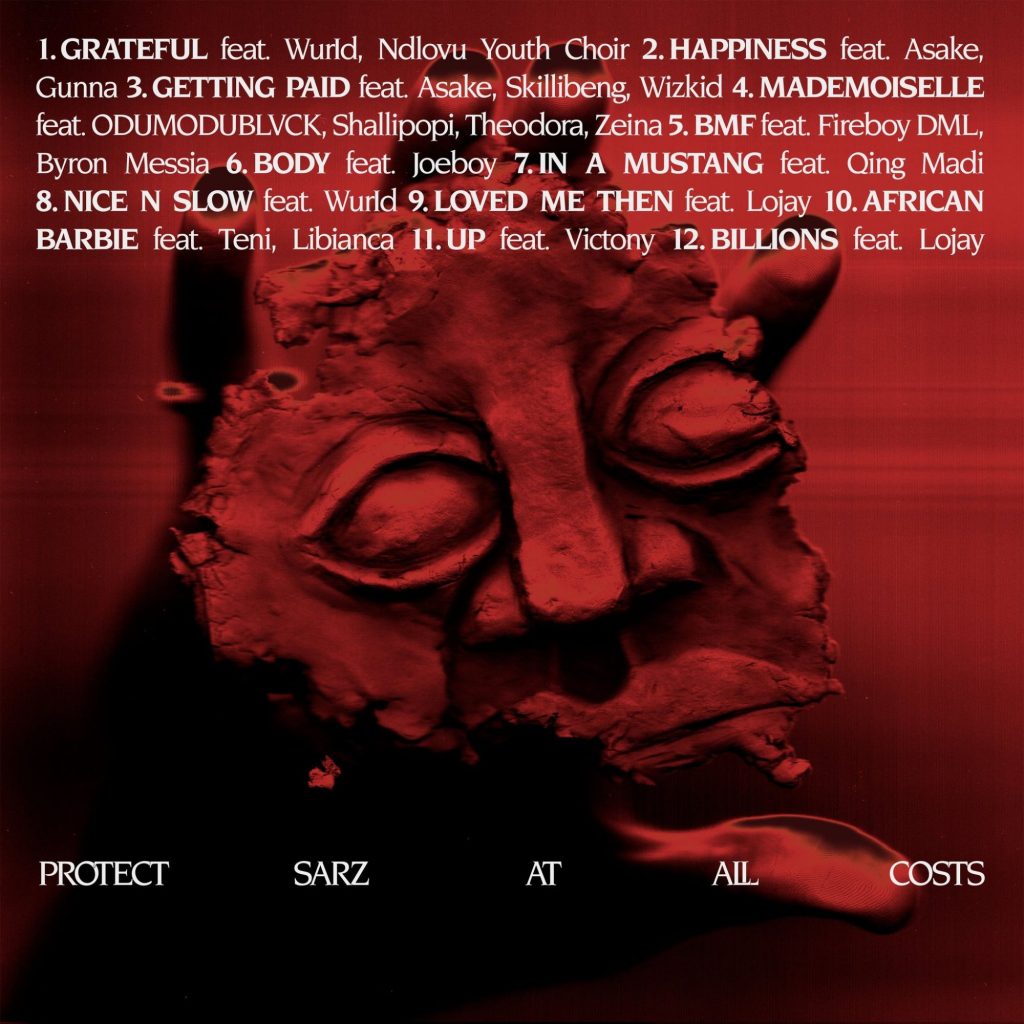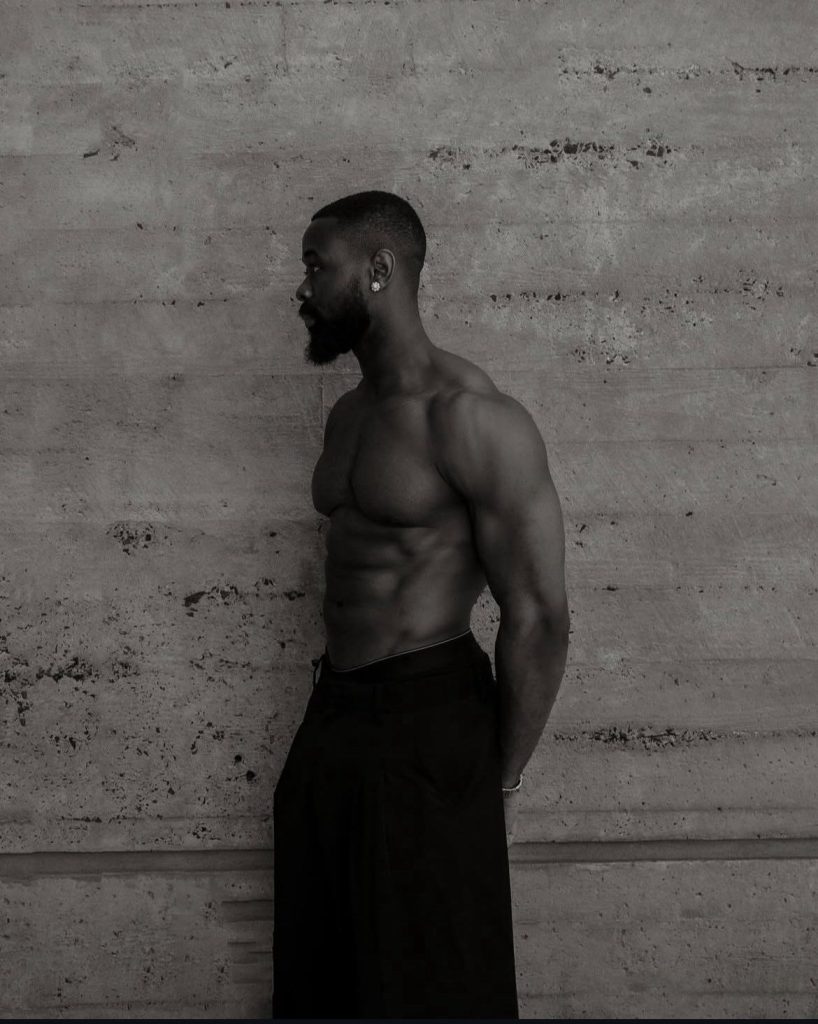On his debut album, Sarz makes it abundantly clear that he’s also a veteran A&R asides being the greatest Afrobeats producer.

Of course, this isn’t the first Sarz “album.” He’s had countless collaborative EPs with artists like Wurld, Lojay and Obongjayar—each of which are so sonically distinct from each other and brilliant in their own right, attesting to his vast range and production skillset. There is also the album that spotlights budding artists and producers from his academy, but that’s an effort geared towards highlighting talent and not necessarily Sarz’s vision for a full blown LP.
Protect Sarz At All Cost was one of 2025’s highly anticipated projects. Asides Sarz prowess as a producer and curator, people are privy to the large array of artists he has access to—both superstars and emerging artists alike, so it makes sense to expect an ambitious project that would go places with unconventional collaborations that one couldn’t get from anywhere else. Now that the album is here, does it live up to these lofty expectations?

Grateful sets the atmospheric, mellow mood for the album. Warm piano notes simmer underneath WurlD’s vocals before making way a beautiful medley of stacked choral notes by the Ndlovu Youth choir. Choirs have become a recurring element in Afrobeats albums these days for better and for worse, but in this case it’s executed well within the boundaries of a spiritual, wholesome yearning for happiness.
Sarz flexes his production prowess on Happiness, blending elements of EDM, Afrobeats and Amapiano into a seamless concoction. The rest they say is history, as Asake and Gunna only have to turn in decent performances although the former’s hook is more memorable. On Getting Paid, Sarz takes quixotic guitar strings and sprinkles it over a dancehall beat with a thumping Afro bass.
This is ideal Wizkid midtempo territory and he shows out with a good verse, but it’s eerily familiar for the same reason it is ideal Wizkid territory. Asake’s hook is too one-note and repetitive. Skillibeng is the real star of the show and his verse is coated with enough defiant swagger and expensive devil-may-care antics that it elevates the sentiment on the song’s hook.
Mademoiselle is a lot more ambitious and Sarz dips his hands in the deep waters of midtempo Reggaeton and disguises it as Afro-Swing. This writer is not the biggest fan of Shallipopi but his hook here is one of the best on the LP, as it’s punchy, catchy and layered enough that it isn’t repetitive. But this song was made for Theodora, whose vocals are so rich and soothing that it needn’t matter whatever she’s saying. Zeina is forgettable and OD’s verse might not be impressive technically, but it sure does leave an impression which is clearly the point.
Fireboy brings his R&B sauce and cadence to the midtempo soundcape of BMF and this is perhaps the only occasion on the album, where Sarz’s production doesn’t give the artist much to do and they have to do the heavylifting. Byron Messia is even more immense, bringing an infectious carribean swagger on his delivery. In stark contrast, Body is one of the best produced tracks on the album.
It still remains in midtempo territory, despite the album needing a much needed jolt of energy but the beat is so electric and packs so much punch and bite that all Joeboy has to do is turn in a one-dimensional performance, so the beat has enough gravitas to pull you in and you aren’t distracted by anything else. Qing Madi reminds us why she’s one of the most talented vocalists on In A Mustang, and consequently the song reminds us her talent is perhaps utilized better in R&B centric songs.
The song is good enough—like almost every other track on this LP—but after an onslaught of midtempo records preceding it, it feels monotonous. WurlD returns on Nice n’ Slow for another formulaic midtempo pop record. Sarz is a really talented producer and there is nothing inherently wrong with tight cohesion, but these songs do not have enough distinct elements to stand out amongst a litany of midtempo songs.

Loved Me Then doesn’t drastically reinvent the sonic wheel in the way that’s needed, but it does do something notably different with a more uptempo, House infused production. Lojay’s variance in delivery also helps, because despite primarily being an R&B artist, he has enough range to reach into his bag and craft lines that ‘pop’ on here. Unfortunately, whatever little momentum that was garnered is immediately tossed aside on African Barbie, as Sarz opts to indulge in the midtempo thing again.
Libianca does turn in a very raunchy performance that paints a vivid sensual experience and establishes her as someone not to be trifled with. Teni is relegated to hook duty only and while her lines are decent, it’s a shame because very few artists can ride a beat like Teni when she is in the zone. Up is Techno house music, suffused with Afro elements and the magic of songs like these are usually entirely in the pulsating thrill of the electric synths. Victony understands this and does the bare minimum.
Billions is reworked from an original version that starts with the beat stripped away, before eventually kicking in. The OG version works better as Lojay’s vocals are left to freely serenade listeners and when the beat does drop, it holds gravity. On here, the beat kicks in from inception and there is no ingenuity left on the song, as it sounds like the plethora of midtempo pop songs that came before it.
Sarz definitely had a vision for this album and it’s clear as day. His intention was to curate a midtempo potpourri of sounds, that is inspired by all forms of music from reggaeton, dancehall, bachata and Afrobeats. However, the execution is lacking. The beats rarely stand out and because they’re cut from the same sonic fabric, the LP cuts it too close to monotony. It’s barely a triumph when it could have been so much more.
Final Verdict:
Sonic Cohesion: 1.6/2
Expansive Production: 1.2/2
Songwriting: 1.3/2
Delivery: 1.4/2
Optimal Track Sequencing: 1.3/2
Total: 6.8/10





